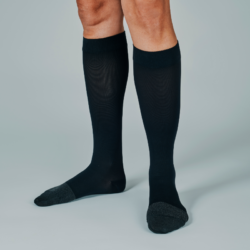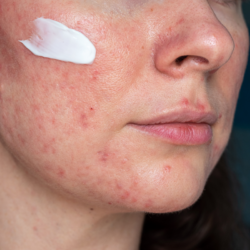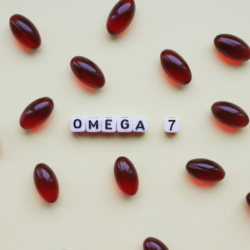Stress is an inescapable fact of modern life. We are constantly exposed to stressful situations, whether at work, in our relationships or even in our environment. And unfortunately, stress can have a damaging impact on our bodies, often manifesting itself in stomach aches and skin problems. In this article, we’re going to explore in depth the links between stress, tummy aches and skin problems, and discuss different approaches to managing them effectively.
What is stress and how does it affect our bodies?
Stress is our body’s natural response to a situation that is perceived as threatening or difficult. When we are stressed, our body releases hormones such as cortisol, which can have an impact on different parts of our body, including our digestive system and our skin.
The impact of stress on the digestive system
Stress can disrupt the normal functioning of our digestive system, which can lead to stomach upsets, bloating this can lead to stomach aches, bloating, abdominal pain and even intestinal problems such as irritable bowel syndrome. Studies have shown that stress can increase the sensitivity of the intestine, causing uncomfortable digestive symptoms. (1)
The impact of stress on the skin
Our skin is also affected by stress. When we are stressed, our bodies release inflammatory substances that can aggravate existing skin problems such as acne, eczema, rosacea or psoriasis. What’s more, stress can upset the balance of hormones in our bodies, which can also contribute to the development of skin problems. (2)
The links between stress, tummy aches and skin problems
There is a close link between stress, tummy aches and skin problems. Stress can trigger physiological reactions that directly affect our digestive system and our skin. Here’s how these three elements interact:
The vicious circle of stress and tummy aches
Stress can cause tummy aches, but tummy aches can also make stress worse. When we’re stressed, our bodies release hormones that can affect our digestive system, leading to tummy aches. In turn, these tummy aches can cause more stress and anxiety, creating a vicious circle that’s hard to break.
The effect of stress on skin problems
Stress can aggravate pre-existing skin problems or trigger new ones. When we’re stressed, our bodies produce hormones and inflammatory substances that can trigger outbreaks of acne, eczema or psoriasis. Stress can also disrupt the skin’s cell renewal cycle, leading to dull, tired skin.
The link between the digestive system and the skin
It’s important to note that our digestive system and our skin are closely linked. Studies have shown that digestive problems such as irritable bowel syndrome can have an impact on the health of our skin. When our digestive system is out of balance, this can lead to increased inflammation in our body, which is often reflected in our skin. So if we suffer from chronic tummy aches caused by stress, this can also contribute to problems skin problems. (3)
Natural solutions for tummy aches and skin problems
Now that we have a better understanding of the links between stress, tummy aches and skin problems, it’s time to explore effective strategies for managing stress and reducing its harmful effects on our bodies.
Practising stress management techniques
There are many stress management techniques that can help you reduce your stress levels and promote your overall well-being. Effective approaches include meditation, yoga, deep breathing and progressive muscle relaxation. These techniques can help you calm your mind, relax your body and reduce the tension that contributes to tummy aches and skin problems.
Exercise regularly
Regular exercise is an effective way of reducing stress and improving overall health. When we exercise, our bodies release endorphins, chemicals that act as natural painkillers and antidepressants. In addition, regular exercise can promote better digestion, reduce inflammation and improve blood circulation, all of which are beneficial for the health of our skin.
Adopt a balanced diet
A balanced diet plays an essential role in our overall well-being. When we’re stressed, we often turn to unhealthy foods or skip meals, which can make tummy aches and skin problems worse. Try to eat nutritious foods such as fruit, vegetables, whole grains and lean proteins. Avoid processed foods high in added sugars and saturated fats, which can contribute to inflammation and worsening skin problems.
Prioritise sleep
Sleep plays a crucial role in our ability to cope with stress. A lack of sleep can worsen stress symptoms, including tummy aches and skin problems. Try to make sure you get enough quality sleep every night. Establish a regular sleep routine, create a restful environment and avoid screens before bed. If you find it difficult to sleep, relaxation techniques such as listening to soft music or guided meditation can help you unwind and promote restful sleep.
Seek social support
Social support can play an important role in managing stress. Talk about your concerns and feelings with family, friends or a healthcare professional. Sharing your experiences and receiving support can help you cope better with stress and reduce its impact on your body and skin.
Consult a health professional
If you suffer from persistent stomach pains or serious skin problems linked to stress, it’s important to consult a healthcare professional. They will be able to assess your situation, give you an accurate diagnosis and recommend appropriate treatment. Whether through medication, therapy or lifestyle changes, a healthcare professional will be able to guide you towards the best approach to managing your stress and improving your overall health.
FAQ
Q1: How can I recognise the signs of stress?
Signs of stress can vary from person to person, but some common signs include sleep problems, fatigue, irritability, headaches, muscle aches, digestive problems and skin rashes. If you notice these symptoms, it’s important to take steps to manage your stress.
Q2: Can stress cause stomach ulcers?
Although stress can contribute to the worsening of stomach ulcer symptoms, it is not directly responsible for their onset. Bacterial infection or prolonged use of non-steroidal anti-inflammatory drugs (NSAIDs) are the main causes of stomach ulcers.
Q3: Can stress cause skin rashes?
Yes, stress can contribute to the development of skin rashes such as acne, eczema or psoriasis. Stress affects our immune system and can cause inflammation of the skin, which can trigger or worsen these skin problems.
Q4: Can stress cause abdominal pain for no medical reason?
Yes, stress can cause abdominal pain for no apparent medical reason. Stress can affect the way our digestive system works, leading to intestinal spasms and abdominal pain. However, it is important to rule out any other underlying medical conditions by consulting a healthcare professional.
Q5: What are the long-term effects of stress on our body and skin?
Chronic stress can have a detrimental impact on our body and skin. It can weaken our immune system, increase inflammation in our body, disrupt hormonal balance, aggravate existing skin problems, and increase the risk of developing chronic diseases such as cardiovascular disease, diabetes and autoimmune disorders.
Q6: How can I prevent stress and its effects on my body and skin?
Preventing stress and its effects on the body and skin involves adopting a healthy, balanced lifestyle. This includes regular exercise, time management, setting limits, seeking social support, regular relaxation, eating a balanced diet and establishing regular sleep routines. It’s also important to recognise and manage the sources of stress in your life, whether through therapy, meditation or other stress management techniques.
Conclusion
To conclude, there’s no denying that stress, an omnipresent companion of modern life, has a significant influence on our well-being, particularly by affecting our digestive system and the condition of our skin. As we’ve explored, the links between stress, tummy aches and skin problems are profound and often interdependent. Fortunately, by adopting stress management strategies such as meditation, regular exercise, a balanced diet and quality sleep, we can mitigate these harmful effects and improve our overall health.
Remember that taking care of yourself is not a luxury but a necessity. By taking proactive steps to manage stress, you’re not only looking after your mental health, but also your physical health, including your digestive system and skin.
We’d love to hear your experiences and advice. Have you found any stress management techniques particularly effective? Are there any natural remedies or routines that have improved your digestive or skin well-being? Share your stories and suggestions in the comments below to help our community learn and grow together.
Your journey to better health and well-being starts with simple but meaningful steps. Together, let’s explore and share ways to improve our lives in the face of everyday stress challenges.
@soin.et.nature Le nouveau patch bouton Centella SOS est là pour vous aider ? ? Avec sa formule enrichie en Centella Asiatica et associant Niacinamide et PHA, il réduit l’apparence des boutons en 24h seulement ! ? ? Sans dessécher votre peau, il crée un film protecteur transparent pour une application facile du maquillage. ? ? Testé cliniquement, il a fait ses preuves en réduisant la taille et la couleur des imperfections. ? ?♀️ L’estime de soi, c’est important ! 81% des utilisateurs disent que Centella SOS Patch les a aidés à garder confiance en eux. ? Dites adieu aux soucis cutanés et hello à une peau confiante ! ? #SoinEtNature #CentellaSOS #PatchBouton #EstimeDeSoi #PeauParfaite #CosmétiquesNaturels #PharmacieEnLigne #VenteEnLigne #TikTokBeauté #RoutineSoins #ConseilsPeau #ConfianceEnSoi #erborian #centella #boutons #patch #acne #acnepatch #imperfections #bellepeau #skincare #dermato #conseil #fyp #pourtoi #perpignan #pharmacie #soinetnature ??
References:
(1) https://pubmed.ncbi.nlm.nih.gov/22314561/
(2) https://www.ncbi.nlm.nih.gov/pmc/articles/PMC8480446/
(3) https://www.ncbi.nlm.nih.gov/pmc/articles/PMC7916842/







